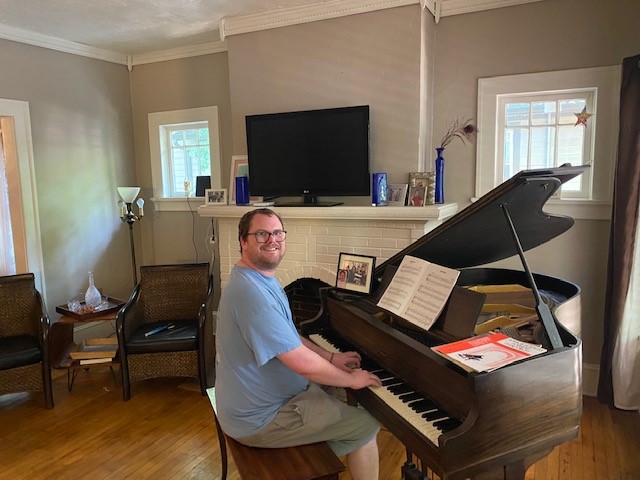THAT'S UNACCEPTABLE
|
"Doing nothing meant leaving things exactly the way they were, and that was unacceptable." Caroline Goode
|

|
Marcie
and I recently had a staycation in Orlando. We enjoyed a great morning
and a lovely lunch, and then we checked in around 3 p.m. at a large,
well-known Orlando resort hotel
In making the reservation, I had taken special care to reserve a room with a king-size bed and a no-threshold shower
to accommodate Marcie’s wheelchair. I even passed up other desirable
hotels because they couldn’t commit to that configuration. A few days
before our get-away, wanting to avoid any mix-ups, I made certain to
confirm “king bed, roll-in shower” with the hotel’s “Social Media
Concierge” IN WRITING.
What
a surprise, then, when we got to our room to find a bathtub instead of a
no-threshold shower. The tub didn’t even have grab bars.
I
immediately called the front desk to let them know of their mistake. A
nice employee listened to my concerns, put me on hold, and then came
back to report they had a room with a no-threshold shower and two
queen-size beds.
I told them that wouldn’t work.
“But that’s all that we have available,” the front-desk person said.
“No,
we need a room with a king-size bed and a roll-in shower. That’s what I
reserved, and confirmed in writing, and nothing else is acceptable.”
“I’m sorry, but that’s all there is,” she insisted.
I
replied, “This hotel has over 1,500 rooms, and you’re telling me you
don’t have a room with a king-size bed and a no-threshold shower? That’s
not possible.”
The conversation went nowhere from there.
Once it became obvious that talking with the check-in clerk was fruitless, I asked to speak to her manager.
The
manager listened kindly and patiently, and repeated the earlier
proposal of “two queens and a roll-in shower,” because “that’s all we
have available.”
I insisted that her answer was unacceptable, whereupon she said “well, let me check.”
She
returned to the call a minute or two later to say, “Yes, we have a room
with a king-size bed and a roll-in shower, but it needs to be cleaned
up. I will have housekeeping expedite the cleaning and let you know when
it’s ready.” She took my cell number, but unfortunately, I did not
write down her name.
The
bellman showed up with our luggage, but we explained the situation and
asked him to hold on to it because we didn’t want to schlepp the luggage
and our two wheelchairs, etc. when we were reassigned rooms. We were
okay just waiting in the mis-assigned room without our luggage.
Then we waited.
And waited.
And waited.
We
never dreamed we’d wait almost two hours without hearing anything from
anyone. By then, my patience had expired. I called the front desk, where
I continued to get the runaround. I asked again for the manager. The
manager picked up and I repeated my story.
She
interrupted me and said she was the same person I had spoken with
earlier, and that our room was still not ready. I then asked to speak to
her
manager, because obviously she didn’t have the clout to get an
“expeditious” room cleaning after nearly two hours. At that point, she
acknowledged she was actually the manager for the whole hotel.
Flabbergasted,
I proceeded to suggest that her hotel’s procedures needed revamping
because two hours was clearly too long to keep paying guests waiting for
their room, especially with “expedited” room clean-up. I told her my
wife was tired of all the nonsense and was ready to find somewhere else
to stay, or just go home. I made a passing reference to the Americans
with Disabilities Act, since our request was all about accommodating a
guest with disabilities, and reiterated that the hotel’s response was
UNACCEPTABLE.
She
said to give her 10 minutes and she would fix the problem, and asked if
she could treat us to dinner at any of the hotel’s fine
restaurants? Which one would be your preference?
I said, “Get us into our room and then we can talk about dinner.”
She hung up and within a minute,
she called back to say our room was ready, and the bellman would take
us and our luggage there momentarily. She recommended their world-class
steak restaurant for a complimentary dinner.
In
no time, we were whisked to our new room with a king-size bed and
roll-in shower. The bellman gave us the hotel manager’s card, the
restaurant manager’s name, and an early reservation where we could order
anything on the menu, at their expense.
Our
dining experience was exceptional. The food was fantastic and the wait
staff swarmed around us the whole time, making sure our every whim was
satisfied promptly and cordially. When I asked for the check, our server
waived us off. “It’s on the house.”
Nice recovery, hotel manager.
But
important questions remain: Why did it take so long for her to
actually address my request, and why did I have to express serious
unhappiness before any meaningful response? Why were we sent to the
wrong room in the first place, and why did they continue to offer me
something (a queen-bed room) when I repeatedly told them that was
UNACCEPTABLE? Why was the correct room suddenly available in less than a
minute after my second call? Why didn’t they call me when it was first
ready, instead of leaving us to cool our heels for nearly two hours?
In
the end, their mistake, neglect, inaction, and attempt to smooth things
over cost them an expensive dinner, and made us question ever wanting
to stay there again. They definitely ruined our plans for the evening.
Five years ago, I wrote a Wednesday Wisdom
article summarizing a rule of thumb from Frank Day, the Chairman and
CEO of Trustmark National Bank. It seems relevant in this situation.
Back
in the 1980s, I was Vice-President and Trust Officer at Trustmark
National Bank. The CEO, Frank Day, was a great champion of integrity and
attentive customer service. He taught that, given the nature of humans
and machines, things will sometimes go awry. But when they do, it’s
imperative that we spring into action to address the problem and redress
any harm done as soon as possible. Call today, not tomorrow. Go to your
customer, tell him the truth, and figure out how to make him whole. Mr.
Day’s mantra still rings in my ears: "Mistakes happen. It’s okay to be wrong. JUST DON’T BE WRONG LONG!”
I
hope I can remember his advice when I’m the one who makes the
mistake. The old saying that “a stitch in time saves nine” is factually
and mathematically correct, especially when it comes to personal and
business relationships. Postponing reconciliation increases the
infection and allows the wound to fester, making it nine or ten times
harder to eventually heal. The sooner we own our mistake, reach out to
the person aggrieved, and search for ways to make things right, the
easier and less costly it is to patch things up.
We’re
grateful for the complimentary dinner, but we’re sorry it had to come
to that. We wish the hotel and their staff lived by Frank Day’s advice: Don’t be wrong long.


